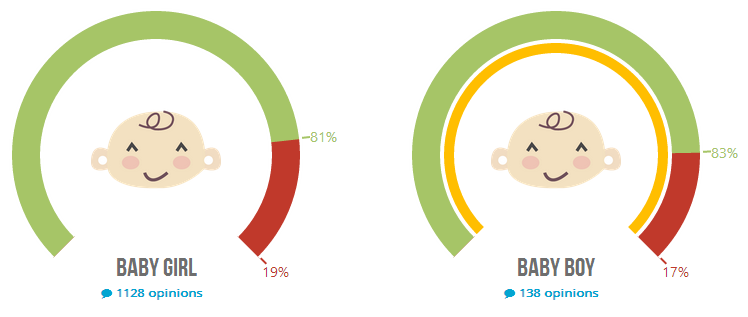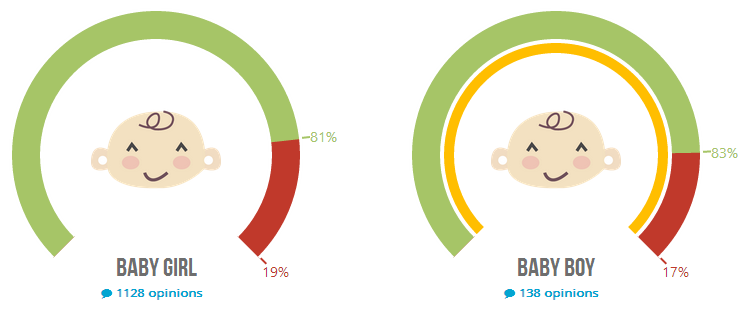Choosing names can be quite a challenge, but you definitely don’t want to name a baby with a name that contains gloomy cultural references or ones which carry bad public opinion with them. You want your child to succeed and you want people like his/her name.
I’ve recently found out a very nice website that allows you to compare how people feel about things. It also allows you to compare two names together, and gives a score from 0 to 100% of how good people feel about it.
For example, you can compare “Mark” to “Tom”: http://www.clevly.com/mark-vs-tom . Enjoy!
Explanation for dummies
Clevly can compare anything to anything for you by using clever artificial intelligence techniques. Just fill in two things you want to compare and Clevly will find opinions given on social media platforms and tell you the average opinions of other people on the internet.
We will also show on how many opinions the results are based. Finally, clevly will select the item with the highest percentage of positive opinions as the winner of the comparison. You can for example compare brands, products, movies, celebrities, computer games etc. Just type them in the text boxes on top of this page and have fun!
Explanation for nerds
Clevly has a database with opinions for millions of n-grams. For each of your queries, we look up the percentage of positive opinions in our database. In the rare case that we do not have an n-gram in our database that matches your query, we search for opinions on the internet ‘on the fly’, so you will still get results.
You can check our counter to see how many opinions we have in our database right now. We have automatically found these opinions by analyzing text from social media platforms. This text is analyzed with advanced sentiment mining techniques. In that way we know whether an opinion about your query is positive or negative (if it is neutral we ignore it completely). Next, we compute what percentage of opinions is positive and what percentage is negative. Note that special techniques have been used to detect ‘fake opinions’ that have been put on the internet by bots. We ignore these fake opinions to give more reliable results. Furthermore we take the age of opinions into account, we give higher weights to recent opinions. Our worker bots are continuously looking for more opinions, in that way we stay up-to-date.
Article publié pour la première fois le 03/09/2015


